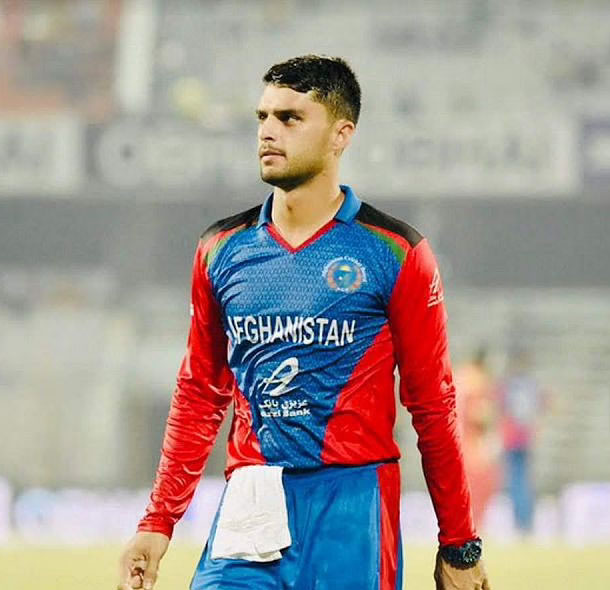(Cricinfo) In the last few months, Afghanistan – the country – has been beset by the chaos and upheaval triggered by the American military’s complete withdrawal of troops from the country and the return to government rule of the Taliban regime. Afghanistan – the cricket team – has not been immune to turmoil during the same period: the nascent women’s team – which has yet to play an ICC sanctioned match – has been told that for them to take the field would be in violation of Taliban policy. Other countries have taken note and decreed that for the Afghanistan women to be denied the opportunity to play is a violation of their own policies towards women’s equality, and in Australia that has meant the cancelation of the inaugural Test which Australia was due to host against Afghanistan.

Though their participation in this World Cup was briefly under a cloud, the ICC gave them the green light to participate in the end. That does not mean that the national team has not endured a bumpy road on the way to the UAE. Government regime change sparked the ousting of the Afghanistan Cricket Board’s chairman. A series with Pakistan wound up being postponed while Rashid Khan resigned as T20I captain in protest – that too, before he even had a chance to lead the team in a game following his appointment to replace Asghar Afghan – after saying he was not consulted before the World Cup squad was picked.
The one positive for them is that they no longer have to go through the opening round. Afghanistan’s cricket has improved to the point where they were included in the second round by virtue of being in the top eight on the T20I rankings table at the tournament cutoff date. It’s a sign of their evolution from Associate prey into Full Member predator.
Afghanistan hasn’t played much T20I cricket due to the pandemic, but they have been largely successful when they have been able to get on the field. Afghanistan won their last three T20I series – a 2-1 win over West Indies in November 2019, another 2-1 win (the only loss came in a Super Over) against Ireland in March 2020, and a three-match sweep of Zimbabwe in March 2021.
Their inconsistency in this area is what has held them back from toppling higher-ranked teams on a more regular basis. But there are signs that this could be changing with the emergence of Rahmanullah Gurbaz at the top of the order. After being named player of the series against Ireland in March 2020, he blitzed 87 off 45 in the first T20I against Zimbabwe this past March, including seven sixes in Abu Dhabi. Any decent platform from him will give Najibullah Zadran the freedom to maintain his aggression in the middle overs heading into the death overs. Outside of them, the team still leans on Asghar and Mohammad Nabi to contribute runs regularly.
Despite the lack of national-team cricket, their stars have gotten plenty of opportunity to stay in form through the world of franchise cricket. In particular their vaunted spin trio of Rashid, Mujeeb-uh-Rahman and Nabi remain in demand for their match-winning consistency.
On the pace side, Naveen-ul-Haq and Karim Janat will likely bowl most of the seam overs. But Afghanistan selectors are pining for a bit of nostalgia with the inclusion of Hamid Hassan in the squad. Even by fast bowling standards, his 34-year-old body has had more wear and tear than most. It’s one reason he hasn’t played a T20I since Afghanistan’s win over West Indies at the 2016 T20 World Cup in Nagpur. But drawing from his inspiring comeback to compete in the 2019 World Cup, he’s giving it one more go to see if he can turn back the clock.
He has never had the pace that Afghanistan’s more-heralded fast bowlers like Hamid and Dawlat Zadran were blessed with, but that hasn’t stopped Naveen-ul-Haq from sourcing far greater interest than they ever did on the T20 franchise circuit. His clever array of slower balls and accurate yorkers at the death have added a new dimension to Afghanistan’s bowling in recent times and transformed him from fringe squad member to automatic selection, one who can win matches and lessen the reliance on the mystery spinners to do all the dirty work.
How will the players perform considering all of the instability at home? Though the ICC confirmed Afghanistan’s participation in this event, that’s not a guarantee going forward if Australia’s decision to cancel a Test match is any indication. The best way to ensure this doesn’t turn into a last hurrah is to score a few victories.
Afghanistan have made a swift habit of bullying teams beneath them in the rankings so a pair of victories against both teams who advance out of the opening round is highly likely. But they’ll need to spring at least two upsets against group opponents New Zealand, Pakistan and India to have any realistic chance of progressing to the semifinals and building a case for their continued inclusion in global events regardless of what happens off the field in Kabul.
Likely XI
1 Rahmanullah Gurbaz (wk), 2 Usman Ghani, 3 Karim Janat, 4 Najibullah Zadran, 5 Mohammad Nabi (capt), 6 Asghar Afghan, 7 Rashid Khan, 8 Naveen-ul-Haq, 9 Mujeeb-ur-Rahman, 10 Fareed Ahmad, 11 Hamid Hassan










